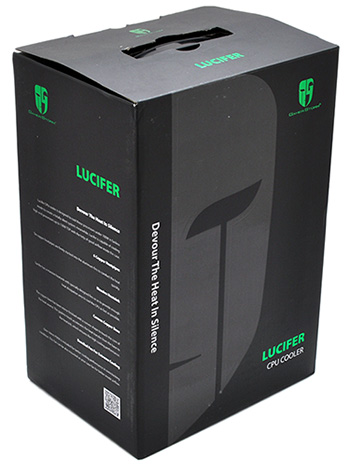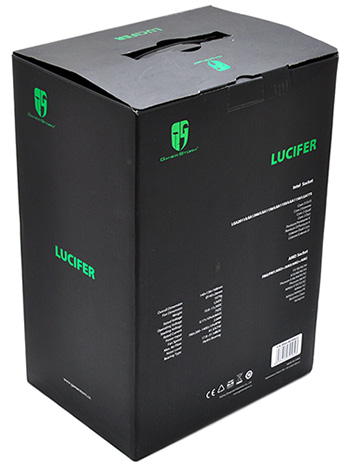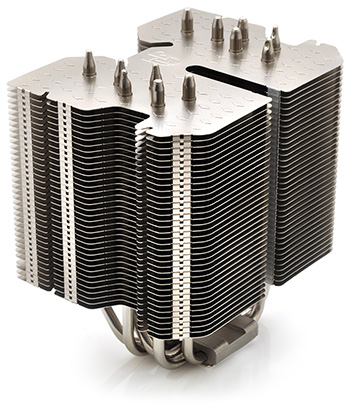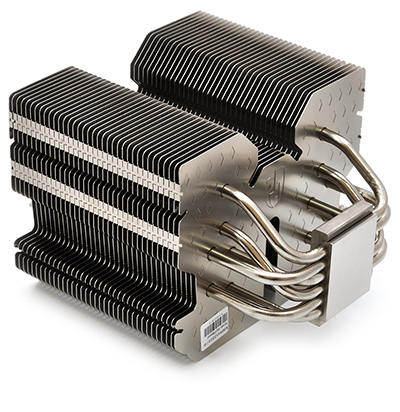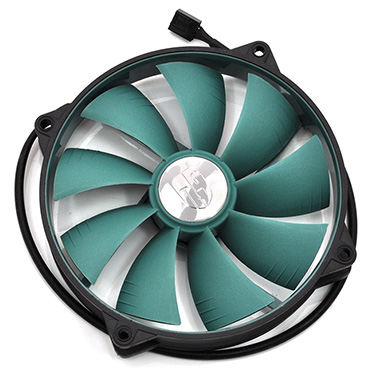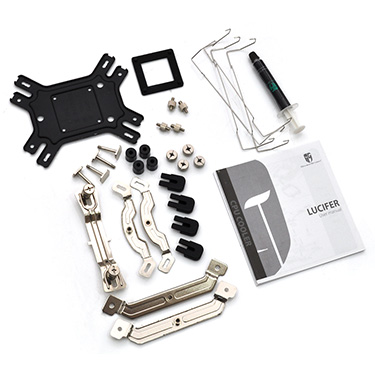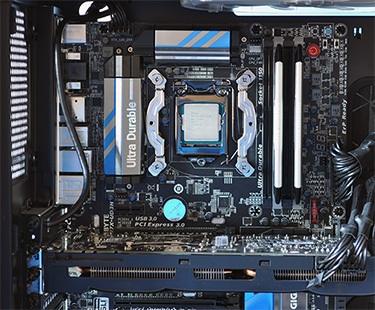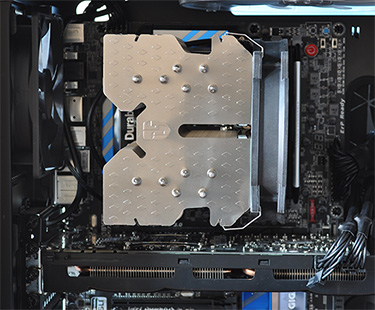Introduction
Ever heard of Deepcool? There's a good chance you haven't, so here's a quick recap: founded 1996 in Beijing, China, Deepcool is a manufacturer of PC cooling components and employs roughly 700 people in its Shenzhen factory.
The company routinely smashes sales figures in its homeland and clearly knows a thing or two about thermal solutions. Why should this matter to our readers in the Western world? Well, having developed a distribution network in over 60 countries around the globe, Deepcool is now ramping up its presence in countries such as the UK and the USA. Key to this movement is the launch of the Gamer Storm sub-brand and the Lucifer CPU cooler.
Presented in a simple-looking black box, Lucifer doesn't appear to have a lot to shout about, but then it doesn't need to say a lot as the message is pretty clear: it's a massive heatsink offering a 300W cooling capacity and, here's the best bit, it costs just £29.
Cheap and Chinese are two words that routinely go together, yet Lucifer doesn't feel like a vastly inferior alternative. True, the packaging is basic and it doesn't carry the finesse of, say, a Noctua, however if you're looking for something that is cheap and cheerful, Lucifer could certainly fit the bill.
Take the heatsink out of the box and you get a sense of the sheer scale of this thing. Without any fans attached, the big block of aluminium fins and copper heatpipes takes overall dimensions to 140mm x 136mm x 168mm, and net weight is a hefty 1,080g.
That's a lot of cooler for £29 and, to our surprise, it is well-put together. The aluminium fins feel sturdy and well-spaced, the mirror-coated, machined copper base is suitably smooth and the half-a-dozen 6mm copper heatpipes are well-spread throughout the stack. Let's put it this way: Lucifer doesn't feel like a £29 product.
As part of the package, Deepcool includes a single 140mm PWM fan that has its pros and cons. We like the fact that the fan has widely-compatible 120mm mounting holes and can push air at 81 cubic feet per minute, but we really aren't keen on the green-coloured blades or the chrome central logo. The colour scheme is unlikely to match most PC builds, and we wish it came in good ol' black.
Still, you can't blame Deepcool for trying to build a brand identity, and we're likely going to be seeing more of the green, black and silver aesthetic in the company's future products. Elsewhere, box contents include a universal backplate, mounting brackets for the latest Intel and AMD sockets, four fan clips (meaning you could add a second fan in a push/pull configuration) and a good-sized tube of Gamer Storm thermal paste.
Installation entails fixing the backplate to the rear of the motherboard using a pair of mounting brackets and a combination of screw bolts and nuts (the Intel configuration is pictured above). Getting everything aligned is simple enough and the fit is suitably snug, but things become a little more complicated when attaching the heatsink.
The giant cooler is held in place using a metal retention plate with adjustable nuts. Getting it to screwed into place is tricky and requires two things: a long screwdriver and a bit of patience. And, of course, size can be a hindrance. Even though the heatsink fins are offset so as not to hamper memory, the attached fan still overhangs three out of four memory slots on our Gigabyte GA-Z87X-UD3H motherboard. As a consequence the fan had to be mounted slightly higher than usual to allow room for the Corsair Vengeance Pro memory modules.
Not a huge inconvenience, but it is a problem that air coolers of this size are faced with and you do need a good amount of room around the CPU socket if you are to consider Lucifer as an option. Right now, this is an area in which liquid coolers have the upper hand: they offer similar cooling potential but take up little on-board space.
Deepcool obviously isn't holding back and we'd be surprised if it ever launched a larger cooler. In fact, the manufacturer is so confident in the heatsink's ability that it claims Lucifer can be used entirely fanless to provide passive cooling on "mainstream processors." That's a good bit of marketing, but let's not beat around the bush, Lucifer is aimed primarily at high-end PCs so let's see how it performs when strapped to an Intel Core i7-4770K.






